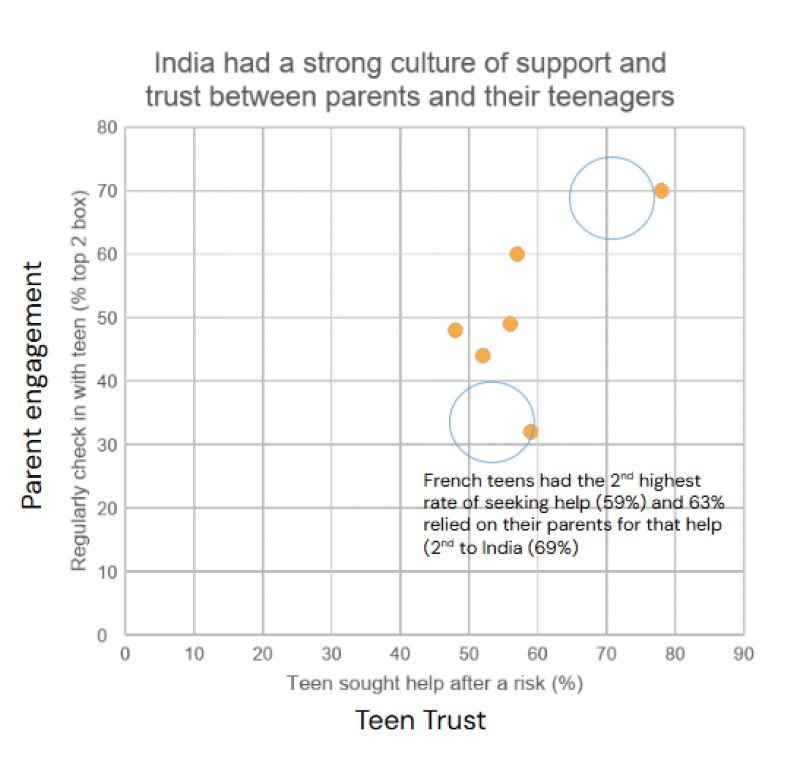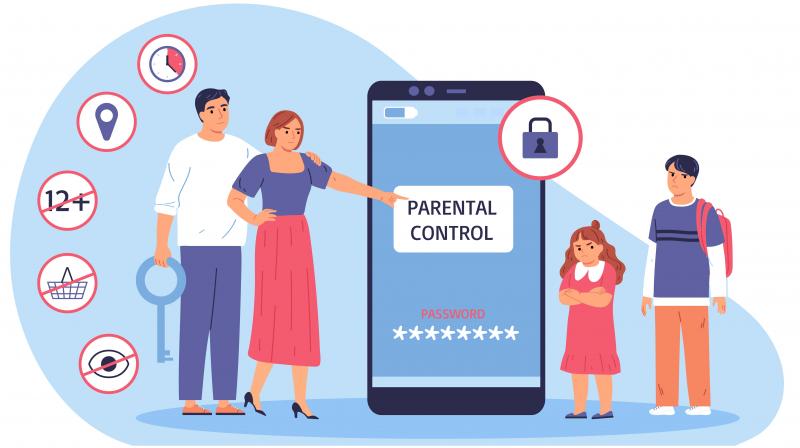Snap Inc has released the third edition of its Digital Well-Being Index (DWBI) report ahead of Safer Internet Day which falls on 11 February.
The survey, covering over 9,000 respondents across India, Australia, France, Germany, the UK, and the US, aimed to assess the psychological well-being of Gen Z users (aged 13-24) based on the PERNA model: Positive Emotion, Engagement, Relationships, Negative Emotion, and Achievement.
The findings revealed that India has once again emerged as a leader in digital well-being, scoring 67—indicating strong support systems and trust between parents and teens. This edition cited that parental engagement has risen to 70%, up from 62% last year, making India the country with the highest level of parental involvement.

While India's digital landscape demonstrates significant strides in fostering safe online environments, the increasing prevalence of online threats underscores the urgent need for enhanced digital protections.
Indian youth face the highest risks globally for sextortion, loss of control over shared intimate imagery, and grooming, emphasising the critical need for education and regulatory intervention.
Other highlights from the report:
- 78% of Indian Gen Zers seek support for online safety, up from 65% in 2023, showcasing strong community resilience.
- India boasts the highest number of support assets—9 to 12 trusted figures per respondent, including parents, educators, and friends.
- 58% of Indian Gen Zers report high satisfaction with their online lives, compared to 53% in the US and 42% in the UK.
- India leads globally in digital flourishing, with 71% of respondents thriving online, ahead of the US (62%), Australia (55%), and the UK (54%).
- Sextortion remains a major concern, with 71% of Indian Gen Zers targeted and 55% falling victim.
- 77% of Gen Zers reported losing control of shared intimate imagery, with 80% of these cases involving minors aged 13-17.
- 60% experienced online grooming (defined as the process by which an adult or older teen uses technology to build an emotional connection with a child for sexual abuse), with minors making up 56% of the cases.
- Legal misconceptions persist, 52% of Indian respondents mistakenly believe it is legal not to report sexual imagery of minors, the highest among surveyed countries.
Given these risks, Snap Inc continues its commitment to fostering a safer digital environment, these findings serve as both a reflection of progress made and a reminder of the challenges ahead in securing online spaces for future generations.
The tech company is leveraging these findings to enhance its 'Family Center' tool, designed to give parents greater oversight of their teens’ digital experiences:
- Content controls are now ‘on’ by default for new users, ensuring greater safety from the start.
- Parents can now disable My AI, Snapchat’s chatbot, from interacting with their teens.
- Greater transparency on safety settings, allowing parents to monitor potential risks more effectively.
Uthara Ganesh, head of public policy, India and South Asia, Snap Inc, said, “This year's findings underscore the growing significance of open dialogue and support between Indian teens and their parents in creating safer online experiences. This positive evolution in the digital parent-teen dynamic is crucial for navigating an increasingly complex online landscape. At the same time, the rise in threats like sextortion and grooming highlights the need for continued efforts across the digital ecosystem to respond to a rapidly evolving threat landscape. Understanding these risks is critical in shaping the protections young people need. At Snap, we are committed to using these insights to refi our safety features, including Family Center, which empowers parents with tools to oversee their teens’ online experiences while respecting their privacy.”













